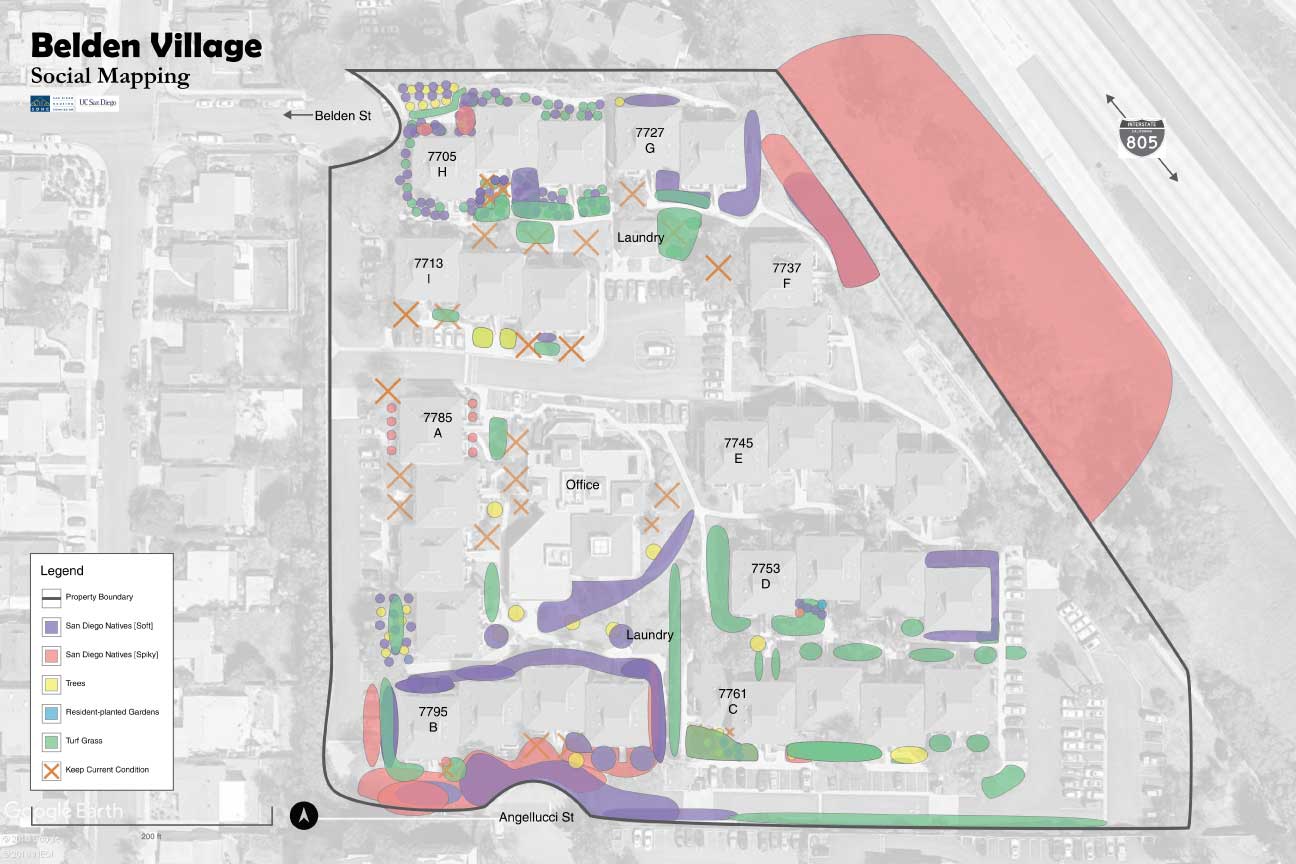
Social mapping is a flexible means of promoting citizen participation in the design of shared spaces. Effective design and implementation of social mapping exercises can overcome socioeconomic and literacy barriers and allow citizens to provide meaningful input based on personal experience and knowledge of neighbourhood and site dynamics. As part of a comprehensive redesign of the landscape at an age-restricted housing complex managed by the San Diego (CA) Housing Commission, social mapping materials and directions were provided to all 242 resident households following community informational meetings. Individual maps from 34 respondents and the property wide social map assembled from individual responses provided essential insights into residents’ perceptions and uses of space, especially around potential strategies to re-introduce community gardening on the property. The results provide important insights into the design of meaningful and effective public participation in landscape design for collectively-managed spaces.

